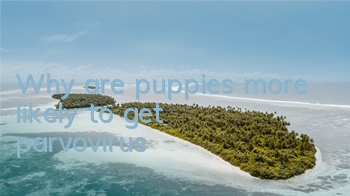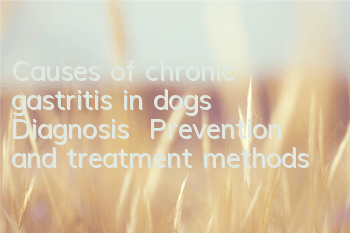The reasons why puppies are more likely to get parvovirus:
1. Insufficient immunity: When puppies are not immunized or the vaccination is incomplete, they are exposed to people with parvovirus. Dogs or their excrement, vomit, saliva, or their owners may be carrying parvovirus when they return home. At this time, the puppies' immunity is insufficient and unable to resist the invasion of parvovirus.
2. Stress triggers microorganisms: Puppies usually have very poor adaptability to the environment. Changes in the environment or sudden stimulation can cause them to have a stress response, making them more susceptible to viruses.
3. Parasites cause parvovirus: Puppies that have not been dewormed are easily infected by parasites, causing vomiting and diarrhea, which leads to reduced resistance of the puppies and makes them susceptible to parvovirus.
4. Caused by improper diet: The gastrointestinal tract of puppies is relatively fragile, such as feeding milk, chicken bones, oily food, etc., which will cause diarrhea and infection of parvovirus.
Measures to prevent puppies from getting minor diseases:
1. Do not take puppies out of the house to play from birth to before vaccination is completed.
2. When it is 45 days old, you can take it to the pet hospital for vaccination. One injection of vaccine should be given every 15 to 21 days. During the vaccination period, you cannot take a bath or have contact with other dogs. , try to keep the dog warm during this period to avoid problems such as colds.
3. After the vaccine is injected, take it to the hospital for antibody testing 21 days later to ensure the effectiveness of the vaccine. This can effectively prevent infectious diseases.








